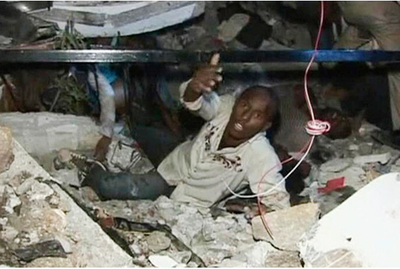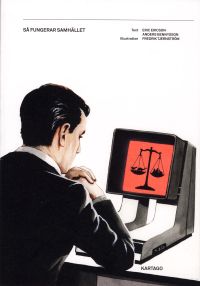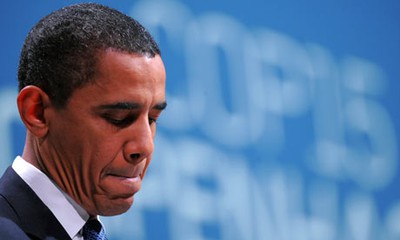the earth and its future

The movie Zeitgeist: Addendum shows a very interesting scenario, a utopia, a society that would work without human work power, where money isn't needed, where resources is shared equally, where all transportation is powered by renewable energy. They describe how this utopia would already work, today. But unfortunately it isn't that easy in reality. The systems the world today is built upon is to deeply rooted, to widely spread into every single corner of this world. Right now I'm reading the book "Så Fungerar Samhället" where Eric Ericson in a satirically way describes how the world we live in is built, how everything circles around consumption. Everything needs money. The world IS money. If we would stop to consume, the entire world as we know it would collapse. It would do a 180 spin towards a new stone age. In that case I guess that I - as someone who's about to step into the world of advertising - is doing the world a favor, or at least for those who likes the world as it is today, likes where it's heading, without having to make any sacrifices. I'm keeping the machinery going, making you and everyone else consume, keeping the society alive. The individual is weak, but together, united, we can achieve the most amazing things. But it's also together we become the biggest threat this earth have ever seen.

The COP 15 meeting in Copenhagen didn't work out, which makes all sense in the world. How on earth are you gonna be able to redirect something that has been growing strong for over hundreds of years, something that is so widely spread, something that everything is built upon? Sure, we can live through our values and try to do good. We can try to live ecological - eat less or local meat, buy second hand, avoid certain products. But it's in the higher districts, in the top of the tallest skyscrapers and in the closed rooms the biggest and most important decisions are made, where there is enough power to actually start spinning the wheel and make any difference. Is that gonna happen? I actually doubt it. Or at least not in the next twenty years.

Even if we manage to flip the coin around, set new standards, new systems, everything is far from over. The changes will strike hard, probably with violent riots and deaths as a result. You can't please everyone. It's both interesting and scary to think of the restrictions that may become reality if the wheel towards a more sustainable world starts spinning. How will it affect us? What luxuries and comforts do we need to sacrifice? Things like yearly family vacations to Thailand and having as many kids as you want is no longer gonna be defendable. Maybe you're not even gonna be allowed to travel outside your continent if it's not work related business.
I've heard some scary future scenario where they would build a giant iron wall between Europe and Africa to keep away all people trying to escape a world that's no longer habitable. Only certain people with high ranks would be allowed to pass. A truly scary scenario, but not science fiction. In fact I think it's closer than we think.
As I see it we got three paths to chose from:
The risky way: Fully take part in trying to change the world with it's current economical system. Stop consuming, make your own clothes, grow your own food, don't make any babies, or maybe just one. Put a giant metal pole in the wheel of production. Try to save the plants and animals that still exist but cut down on our wealth, luxuries and comfort. It's probably gona take A LOT of effort to flip the coin, probably with fatal and devestating results, at least in the first staggering round.
The middle way: Live like you do today, with some minor changes and hope for the best. Take the bike as long as your destination isn't to far away, only try to fly once a year, stop consuming some things that's bad for the nature so that the manufacturers eventually stops producing those things (no market no recources). But will it have any impact? Will it make that big of a difference?
The "safe" way: Fully play along with the system we got today. Consume even more. Put more money in the giant loop. Even if the nature dies we will be wealthy and contribute to science and other stuff that may help us overcome diseases, poverty and other widespread problems. Maybe the scientist are able to come up with cars or even airplanes that runs on water, maybe they will come up with ways to recreate extinct species, which of course is only possible if they keep getting money.
Which path will you chose?
Bra skrivet, intressant och så.
Actually I am freaking out with all the catastrophes lately, it feels like its more than before.
Vet inte om man kan dra den parallellen att jordbävningarna har något med miljöpåverkan att göra, men det är ju absolut bra att någon tänker på miljön när det händer, tänka på miljön måste vi ju göra oavsett.
Det är spännande detta med förändring. Jag tror att förändringen bara är hållbar om vi lyckas skapa en "inre" förståelse i varje individ. Efter andra världskriget var människor lamslagna och några år var det till och med nästan fred på jorden. Dock så började människan glömma, sakta men säkert. Det är denna glömska som vi måste göra oss av med. Kan man föreställa sig en värld där ett minne som andra världskriget förflyttar sig, till kommande generationer?
Det går att leva sig in i hur människor kände när världen rasade under andra världskriget, det går faktiskt att förstå, om man vill förstå. Man kan förstå judarnas plågor, om man bara lyckas föreställa sig situationen tillräckligt väl. Inlevelseförmåga, jag tror det är ett otroligt viktigt ord idag. Alla kan beröras, vad vi måste förstå är hur man ser till att alla blir berörda. För om man kan lära ut till en människa hur han ska bli berörd då kan man förändra alla generationer. Då kan man bevara ett minne som andra världskriget och då kommer alla själva dra paralleller mellan andra världskriget och aktuella hot, vare sig det handlar om miljökatastrofer eller krig.
Vi kan kanske bygga ett hållbart teknologiskt/ekonomiskt system men kan vi bygga en hållbar inlevelseförmåga, det är frågan. Löser vi den frågan då löser vi mycket, tror jag.
